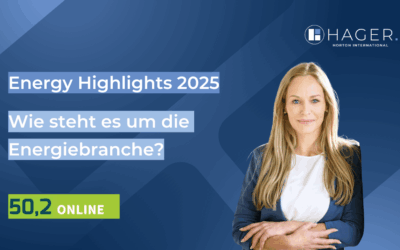As part of a virtual lunch break, HAGER Executive Consulting hosted an exciting lunch break on 29.04.21, which provided a glimpse into the future of the working world.

Is the future of work diverse? Or only digital?
Entrepreneur, investor, bestselling author and one of Germany’s most important opinion leaders when it comes to diversity, visibility and digitalization, Tijen Onaran gave the participating guests a comprehensive insight into the digital and diverse working world of the future. Onaran is internationally committed to digitalization and the visibility of women in the economy.
There is no digitalization without diversity!
When it comes to diversity, we have an implementation problem, not a problem of knowledge. Diverse teams bring more innovation and better answers to the questions of the future world of work. But what does it take for real and lived diversity in companies? How must leadership change so that diversity does not just remain lip service? Diversity is and remains a matter for senior management – and companies are no longer measured by whether they position themselves on diversity, but how. The role of the CEO is also more socio-political than before; whether diversity or sustainability – not taking a political stance will no longer work in the future.
“Those managers who have a clear stance and positioning on the socio-political issues of our time ultimately have a clear advantage. Whether it’s about attracting new talent, reaching customers or shaping a healthy corporate culture. Diversity in thought and action is the key to success”! Onaran comments on the topic of the world of work in 2030.
The future of work will change in many ways
In addition to core topics such as mobility, diversity and digitalization, the executives of tomorrow will constantly question their own knowledge, update it and be equally open and agile to other trends. Not just passively, but actively. Accept them, implement them and fill them with ideas and life.
“An exciting presentation with a very refreshing speaker. Tijen Onaran took her audience along with her and got to the heart of the issues of the world of work in 2030. Afterwards, every one of the more than 100 guests who attended should have clearly understood the message. Everyone is calling for digitalization, but an essential prerequisite for this is to also prioritize the issue of diversity. The most successful teams are mixed. The success of a company stands and falls with the right key players. And here it is irrelevant what gender, nationality, skin color etc. is behind it, it depends on the person and their skills, ” summarizes Martin Krill, Managing Partner at HAGER Executive Consulting
White Paper from HAGER
In a white paper entitled “Executives 2030: How they work – and where to find them”, HAGER also sheds light on the question of how exactly the talents of the day after tomorrow and their dream employer will find each other, which technologies will help both sides in this process, including genetic analysis, and what role HR consulting will play in 2030.
The white paper is available from HAGER Executive Consulting.


